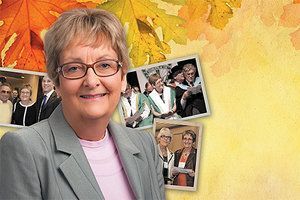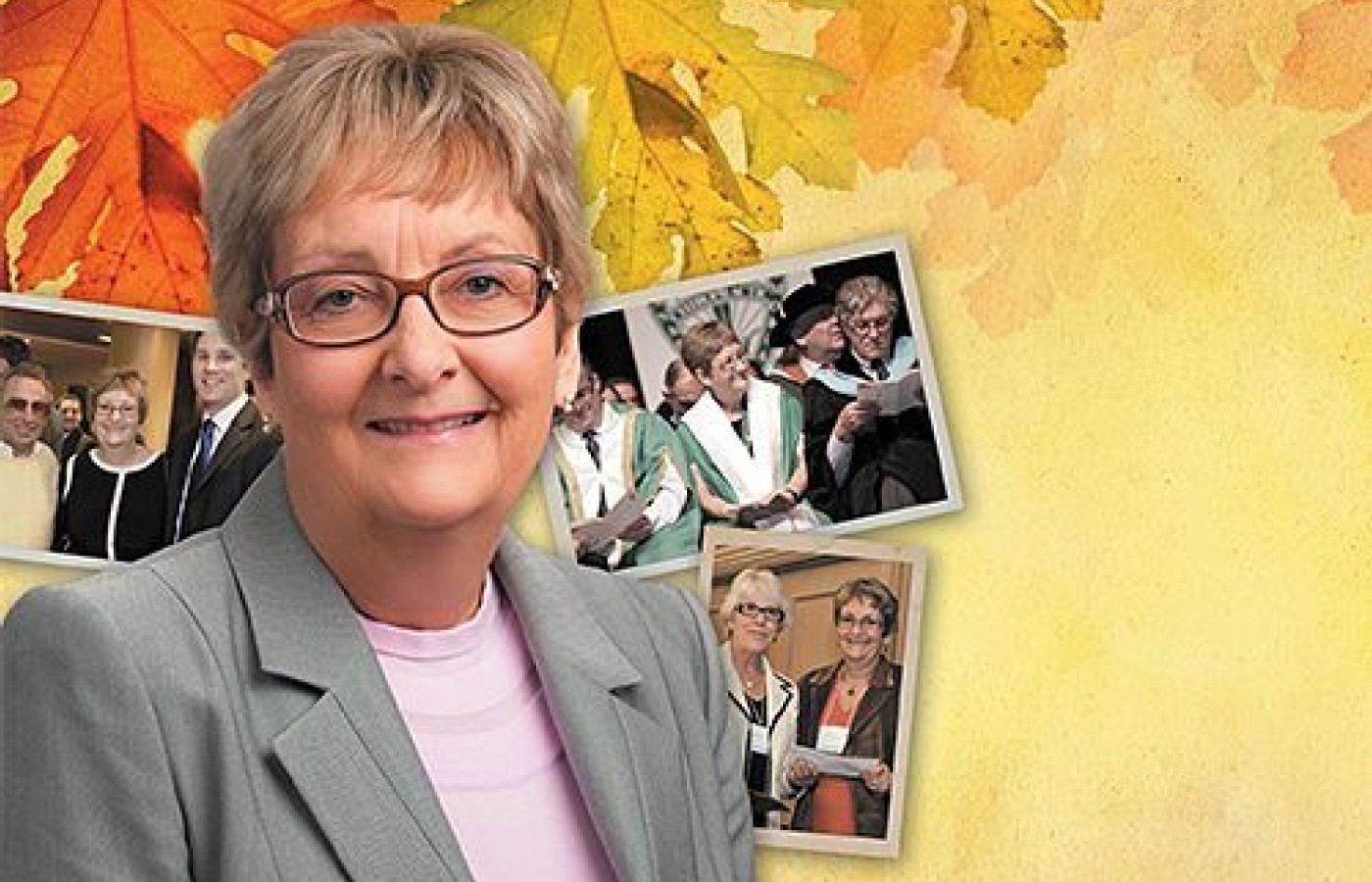New York's highest court of appeals has held that no-fault insurers cannot deny no-fault benefits where they unilaterally determine that a provider has committed misconduct based upon alleged fraudulent conduct. The Court held that this authority belongs solely to state regulators, specifically New York's Board of Regents, which oversees professional licensing and discipline. This follows a similar recent ruling in Florida reported in this publication.
Reflecting on the Past, Looking to the Future
Exciting. Challenging. These are the words Dr. Jean Moss used to describe her 23 years as president of the Canadian Memorial Chiropractic College (CMCC). As she prepares to step down from her position on June 30, 2014, she recently reflected on her legacy that includes an array of accomplishments which have changed the profession for the better.
"I would like to be remembered for helping the growth of an institution to be one of the best in the world," said Dr. Moss, who is the first woman president of CMCC.
With a strong reputation among her colleagues, Moss can look forward to that type of glowing legacy.
During her tenure, she has been credited with most of CMCC's biggest advances over the years, including the building of a landmark campus in 2004, the establishment of the McMorland Family Research Chair in Mechanobiology (the only one established in an independent chiropractic institution), obtaining degree granting status for the Doctor of Chiropractic program, and then renewed consent for an unprecedented 10-year period.

Dr. Moss said these make the list of her biggest accomplishments, in addition to establishing an academic articulation agreement with the University of Ontario Institute of Technology (UOIT), which led to the establishment of the UOIT-CMCC Centre for the Study of Disability Prevention and Rehabilitation on the CMCC campus.
These types of foundations, established during her tenure, have proven to be revolutionary for the profession, she said.
"There has been a great deal of collaboration," said Dr. Moss. "From this to the development of chiropractic clinics in major teaching hospitals, we have been able to create interest from around the world and it has been a wonderful opportunity for our profession and our students to work with other health professionals."
But during the past 23 years, there have also been hurdles to face along the way, she said, explaining that her biggest accomplishments at CMCC have also been her biggest challenges during her tenure.
As she worked to establish good relationships with other health professions, she also had to ensure funding for bringing the landmark campus to fruition, which had a number of challenges within itself. And as she prepares to leave her post, there remains the challenge of what she calls an ongoing "identity crisis" the profession seems to have.
Dr. Moss said chiropractors still have the tendency to see themselves as wellness professionals, but outside stakeholders continue to see the chiropractors as professionals who only deal with musculoskeletal conditions.
This opposing view is where the dichotomy continues to exist.
"There have been attempts to create a new image," she said. "I think this will continue to be a major challenge for the profession in most countries."
As she approaches a new chapter in her life, Dr. Moss said she also hopes to continue to see the profession's inclusion as a member of the healthcare team grow into even bigger opportunities than the ones she was able to experience during her tenure.
"The groundwork has been laid for the profession to be a member of the healthcare team," she said. "The perception of the profession has significantly changed opportunities."
Dr. Moss' honest and open analysis of the profession is one thing many of her colleagues appreciate about her.
David O'Bryon, Association of Chiropractic Colleges (ACC) executive director, called her "the conscience of the [ACC] board," noting her ability to always ask about best practices and ask the tough questions during her tenure. O'Bryon also said Dr. Moss was always able to do this while having her hand in a number of other things at the same time.
"[Dr. Moss] brings a great background of experiences that include DC and MBA degrees. During her term as ACC president she was a master multi-tasker," said O'Bryon. "She sold a campus, bought and constructed CMCC's new campus and ran the ACC – all the while running an envied college program and earning the respect of her colleagues. Among her many tasks on ACC's behalf, she helped forge the World Health Organization's chiropractic guidelines document. She has been a great mentor to many young DCs and her faculty."
Others, like Dr. Silvano Mior, senior advisor to the president and research scientist at the Canadian Memorial Chiropractic College, said Dr. Moss was always able to promote a strong and unified voice for the profession by not being afraid to hold people accountable for their actions, noting the recent distinguished service award bestowed upon her at the recent World Federation of Chiropractic's (WFC) Biennial Congress in Durban, South Africa, as a reflection of such commitment.
In addition, Mior highlighted Dr. Moss' skill as a unifier as one of her biggest strengths.
"In my opinion, her legacy will not be the bricks and mortar of an impressive state-of-the-art facility, but the soul of a vibrant community that inhabits it," said Mior. "She leaves an image and reputation of a quality chiropractic educational program that continuously impresses government officials, academics and diverse stakeholders worldwide, who come into contact with her and CMCC."
As the CMCC Board of Governors works to find a presidential successor, Dr. Moss said the one thing she hopes her successor will be able to do is remain flexible to seize opportunities when they arise.
"Much of CMCC success has been based on the fact that we have been able to react to opportunities when they come up," she said.
As she comes to the end of her career with CMCC, Dr. Moss said she looks forward to spending more time with her family and participating in organizations like World Spine Care, which helps establish spine care clinics around the world for those in need. She will also be working on compiling the past 20 years of CMCC's history.
"It will be very nice to not have restrictions on my time, [although] I thoroughly enjoyed my position and influence on the profession. I will most definitely miss it," Dr. Moss said.



